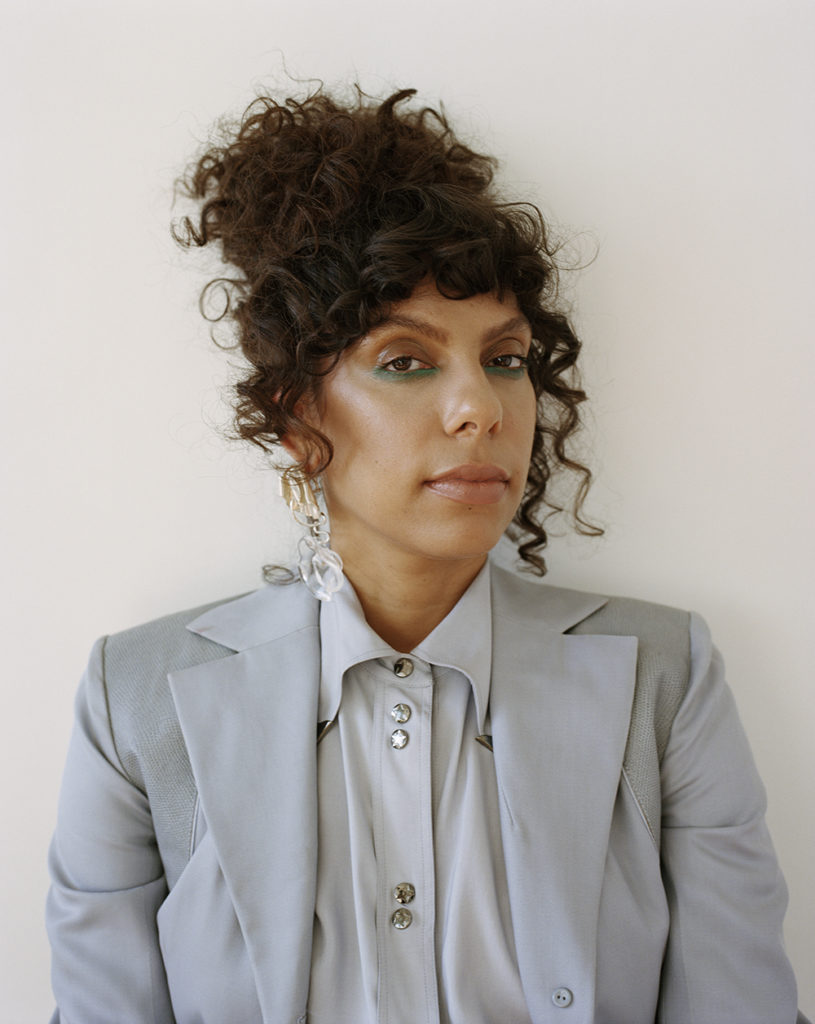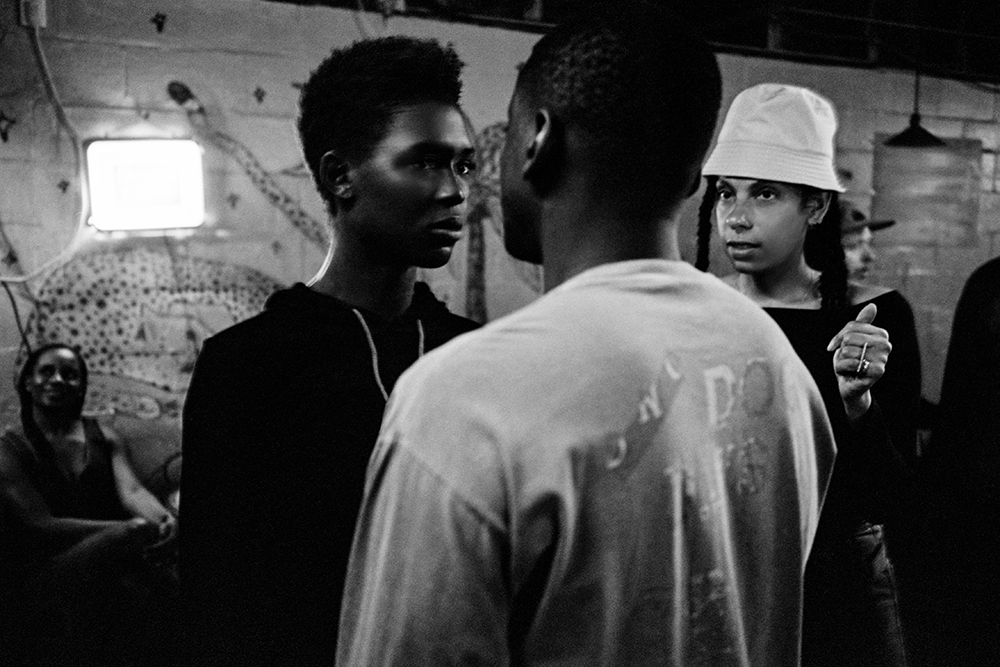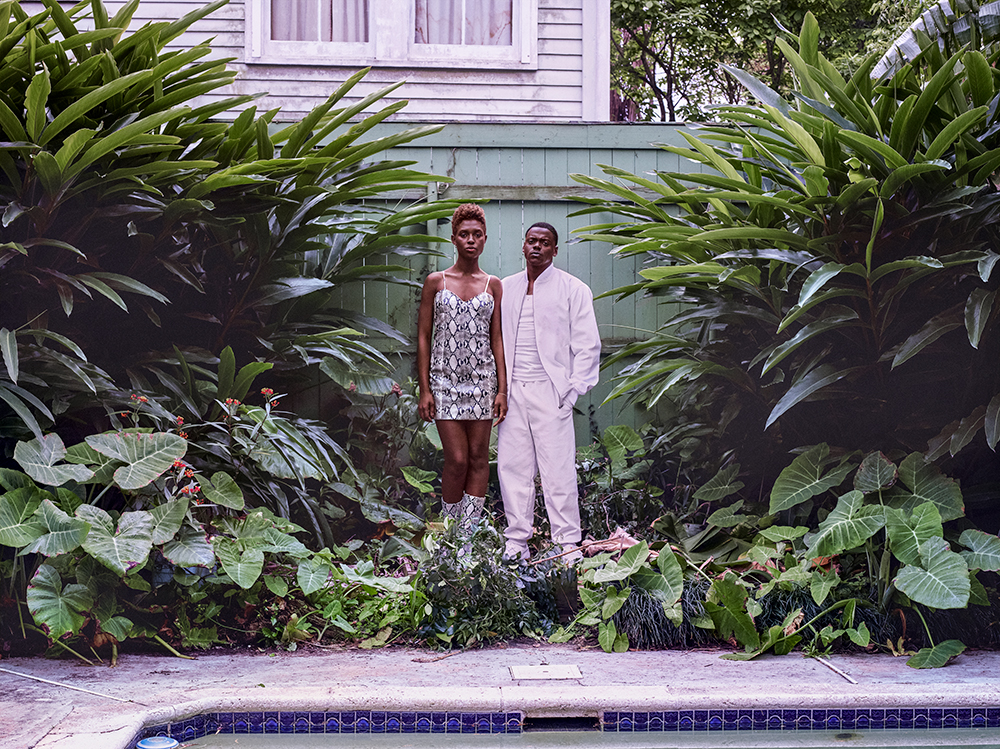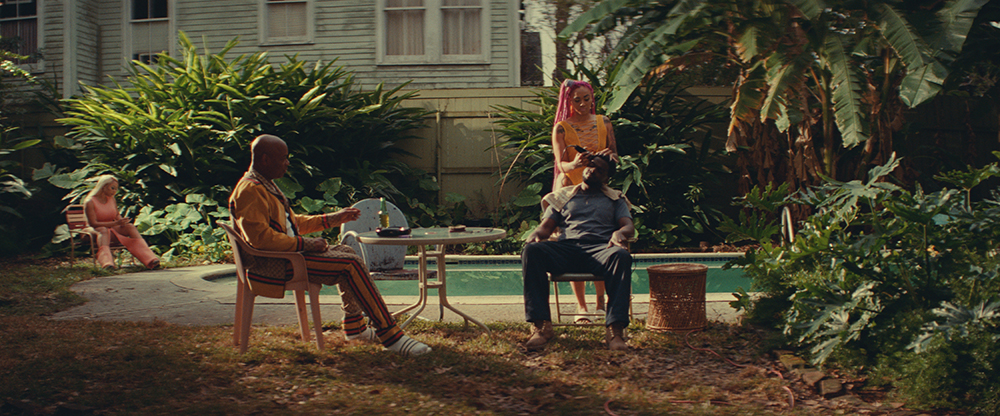
In the opening scene of Queen & Slim, its titular characters (played by Jodie Turner-Smith and Daniel Kaluuya, respectively) are on a charmingly underwhelming first date. He’s eating with his mouth open. She’s appalled. He wants to take her home. She’s not interested. The interaction is familiar, banal even, for those of the dating-app generation. But moments later, the couple is thrust into the realm of the heartbreakingly surreal, after Slim is stopped for a minor traffic violation and winds up killing a cop in self-defence. The film unfolds into a multistate police chase, not unlike the 1967 film adaptation of history’s most infamous couple-on-the-run, Bonnie and Clyde. But Queen & Slim director Melina Matsoukas encourages us to look further than familiar tropes in defining what her film means in 2019. “I feel that black films should be able to create spaces of their own and not depend on white archetypes to be defined,” she says. “Had that been allowed before, maybe Bonnie and Clyde would have been a different colour.”

In any case, it would be more apt to consider Queen & Slim the latest chapter in Matsoukas’s own bold narrative—she is the mastermind behind many of the past decade’s seminal music videos, from Rihanna’s “We Found Love” to Lady Gaga’s “Just Dance.” What’s more, her decade-plus year collaborative relationship with Beyoncé has spurred such heavy-impact hit videos as “Pretty Hurts,” parts of the game-changing visual album Lemonade, and “Formation,” the video lauded for its commentary on the Black Lives Matter movement. “My intention was to transition into the narrative space, so I remember making a really conscious effort to tell stories in my music videos to show that I could do it,” she says.

In 2016, Matsoukas switched gears to direct her first television show, Issa Rae’s Insecure, and the following year, she was hired by Lena Waithe to direct “Thanksgiving,” an episode of Master of None which Waithe wrote and starred in. The episode would go on to win an Emmy for Outstanding Writing in a Comedy Series, setting Matsoukas’s and Waithe’s creative partnership in motion. At the time, Waithe was writing the script for Queen & Slim. “She said, ‘You have to direct it!’ and I said, ‘Uh, if I like it.’ I really don’t like my relationships to dictate my work and every project I choose, but I read that script and I couldn’t put it down. I knew it was my first film,” says the director. “I search for projects that have a perspective and that I know are going to create a dialogue but also be a really entertaining piece of work, and I think this has both of these aspects.”

Queen & Slim shape-shifts around so many genres that it’s refreshingly hard to define. It’s protest art. It’s a stylish love story. It’s an unvarnished look at the disintegration of race relations. Above all, it’s about survival. “We’re trying to communicate the reality of police brutality and what it feels like every time a person of colour gets pulled over, and how your world can change in two seconds because of the racism that is embedded in that institution,” says Matsoukas. “We’re also trying to bring humanity to people of colour, so that we’re not seen as monsters, by shedding a light on the struggle that we have to live on a daily basis— by really making it visible and changing it.”
Queen & Slim: property of Makeready/Universal Pictures.

